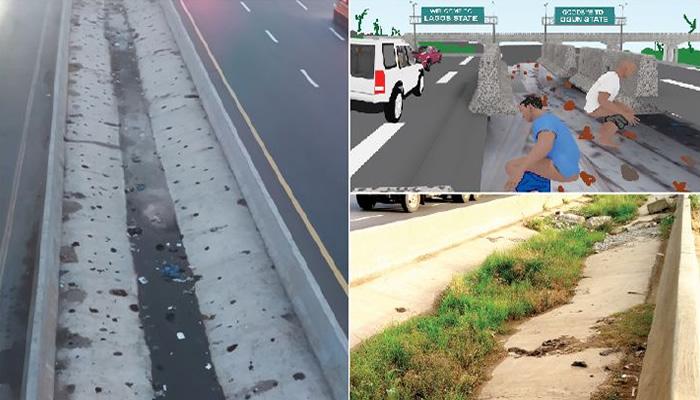The Lagos-Ibadan expressway, a vital 127km six-lane road connecting Lagos, Ogun, and Oyo states and serving as a major route to the North and South of Nigeria, has long been known for its traffic congestion and accidents.
However, recent reconstruction and rehabilitation efforts aimed at easing these issues have inadvertently given rise to a new problem – rising incidents of open defecation.
Despite significant government investment in the expressway’s reconstruction, miscreants and touts have turned the median into public toilets, creating an unsanitary and unpleasant environment. The stretch from Sagamu Interchange to the Ojodu Berger axis in Lagos State has become particularly affected, with human feces littering the area.
While the expressway’s revamp successfully reduced auto accidents and traffic gridlock, the emergence of open defecation raises concerns about hygiene and public health. Residents have reported an unbearable stench, especially in areas like Kara-OPIC, where feces not only cover the median but also spill onto the roadsides, the bank of the Ogun River, and the cattle market.
READ ALSO: Port Harcourt Oil Refinery to be Privatized for Operational Efficiency
Local residents have expressed their worries, noting that urgent actions are needed to avoid potential disease outbreaks. Complaints to government agencies have been made, but no concrete measures have been taken to address the issue.
Some residents attribute the problem to miscreants who lack a proper place to call home. Despite the existence of public toilets along the expressway, some individuals choose open defecation due to their reluctance to pay the token fees charged by these facilities.
READ ALSO: Alleged Land Grabbing Saga Unfolds in Alimosho, Lagos: Families Plead for Government Rescue
Community leaders and residents alike emphasize the need for stronger enforcement by relevant government agencies to curb open defecation. They highlight the absence of health and sanitation officers at the local government level, calling for a revival of Environmental/Sanitation Inspection Officers to monitor and enforce sanitation rules.
As Nigeria continues to invest in critical infrastructure projects, attention must also be given to maintaining public hygiene and addressing emerging challenges to ensure a safe and healthy environment for all.



